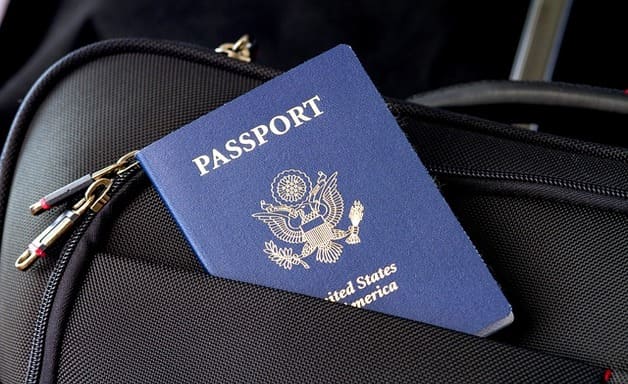
Bali has become a top destination for digital nomads, offering a perfect blend of tropical paradise and modern amenities. However, it’s essential to understand the intricacies of digital nomad insurance, visa, and tax requirements in this Indonesian haven before you go.
From understanding the nomad visa options to navigating tax obligations, this post will equip you with the knowledge to make the most of your stay as a digital nomad in one of the world's most beautiful islands.
Bali digital nomad visa options
There are 2 primary digital nomad visas for Bali :
- The C-type Visit Visa (previously known as 211A visa) - allows stays of up to 60 days but can be extended twice for a total stay of up to 180 days
- The E33G Remote Worker Visa - valid for 1 year, is a KITAS or Temporary Stay Permit
The C-type visa is suitable for freelancers and short-term remote workers. The E33G visa is designed for those employed by companies outside Indonesia.
To apply for the E33G digital nomad visa for Bali, you need to have an annual income of at least $60,000. You also need to have proof of an employment contract with a company outside of Indonesia.
It's crucial to note that these visas do not permit work for Indonesian companies or clients. Income must be received from abroad, and tax obligations remain with the nomad's home country.
Tax obligations for digital nomads in Bali
Digital nomads in Bali face different tax considerations depending on their visa status and length of stay. Some key points to consider include:
- Holders of the C-type visa (staying up to 180 days) are generally not subject to Indonesian income taxes.
- Individuals staying in Indonesia for more than 183 days within a 12-month period are considered tax residents and may be required to report their global income.
- However, income earned from foreign sources is typically exempt from Indonesian taxes for the first four years of residency.
- Digital nomads must apply for a tax number (NPWP) and file annual tax returns, even if no taxes are owed.
- Double taxation agreements exist between Indonesia and various countries, which may provide tax relief.
Whatever your situation, we advise consulting a local tax professional to ensure compliance with both Indonesian and home country tax laws and avoid potential legal issues.
It’s also worth mentioning that holders of the C-type digital nomad visa will be required to pay the Bali tourist tax upon initial entry to the island. However, paying the tourist tax for Bali is not required for KITAS holders.
Digital nomads health insurance advice for Bali
Choosing the right digital nomad health insurance is crucial to ensure safety and security during your stay in Bali:
- Short visits: If you’re visiting Bali briefly, whether for holidays or a short workation, medical travel insurance is typically sufficient. This insurance covers any health emergencies that might occur during your stay.
- Longer stays: If you plan to live in Bali more permanently as a remote worker or digital nomad, consider obtaining global health insurance. This type of coverage not only protects you in Bali but also in your home country. This makes it ideal for those without existing health coverage.
Be aware that hospitals and doctors in Bali require either proof of insurance or direct payment before treatment. Therefore, ensuring you have adequate health coverage is not just advisable—it’s essential to avoid potential financial and medical crises.
Accommodation options for digital nomads in Bali
Bali offers a variety of accommodation options suitable for digital nomads, ranging from hostels and guesthouses for short stays to villas and apartments for longer leases.
Many digital nomads opt for co-living spaces, which provide not only housing but also community and networking opportunities.
These accommodations often come equipped with high-speed internet and workspaces, making them ideal for those who need a ready-to-use office setup.
Co-working spaces for digital nomads in Bali
Due to the island’s growing community of digital nomads, co-working spaces are abundant in Bali. These spaces offer reliable internet, comfortable working environments, and opportunities to network with like-minded professionals.
From beachfront setups to quiet inland retreats, Bali’s co-working spaces are designed to boost productivity while allowing you to enjoy the island’s laid-back lifestyle.
Driving in Bali as a digital nomad
Navigating Bali by motorbike or scooter is popular among digital nomads, but it's essential to adhere to local driving regulations to ensure a smooth experience.
To rent a scooter or motorbike in Bali, you’re required to have both your national driving license and an International Driving Permit (IDP).
Bali's law enforcement is increasingly vigilant about tourists following local driving laws. It's important to carry and use both your IDP and national driving license. You cannot use just the IDP.
You can acquire an International Driver's Permit in your home country, typically from the same department that issued your national license. Alternatively, you can apply for an IDP online.
Additional tips for digital nomads in Bali
When navigating life as a digital nomad in Bali, it’s crucial to approach certain legal and financial aspects with caution to avoid complications.
Here are some important things to keep in mind:
- Always verify the legitimacy of any visa solutions or advice offered by others, as misinformation can lead to serious legal issues. Be wary of “fake” employment KITAS issued by agencies, as they can be tied to a specific company and a type of and can have income tax implications.
- Don’t acquire an Investor KITAS unless genuinely investing. Some agents might offer to make you a shareholder in a company just to qualify for this visa. However, this comes with legal and fiscal responsibilities, and immigration is increasingly scrutinizing such arrangements.
- Don’t work for Indonesian entities without proper employment. Engaging in local employment or earning income locally without the appropriate visa can lead to legal problems.
- Don’t engage in unauthorized paid work. Activities like teaching yoga, DJing, life coaching, or running workshops without a proper work permit are illegal and could lead to deportation.
- Don’t rent out rooms or sub-lease without authorization. Advertising rooms for rent on platforms like Facebook is considered a business activity, which can also lead to legal action, including deportation.
By adhering to these guidelines, you can avoid potential pitfalls and enjoy a productive and trouble-free stay.


